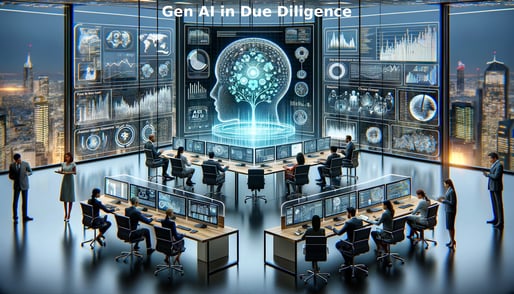When conducting IT due diligence, the focus is on understanding the current state of the company's technology landscape, its adequacy for current and future operations, and the robustness of its security measures.
Here are 25 questions that can help peel back the layers of the target company’s IT capabilities and risks:
1. Can you provide an inventory of all software and hardware currently in use, including versions and license statuses?
2. How is the current IT infrastructure designed to support the company’s day-to-day operations?
3. What Enterprise Resource Planning (ERP) systems are in place, and how well do they integrate with other systems?
4. Can you detail your supply chain management and customer relationship management solutions?
5. How are your financial and accounting systems structured, and are they compliant with relevant financial regulations?
6. What is the age of your hardware, and what is the schedule for updates and replacements?
7. Could you provide an analysis of the scalability and flexibility of your current IT system?
8. How does the company ensure data management and data security, and what protocols are in place for data privacy?
9. Can we see the qualifications and experience levels of the IT staff, and how do they stay current with evolving technology?
10. Are there any agreements with outside IT service providers or vendors, and what services do they cover?
11. How comprehensive is the disaster recovery plan, and when was the last time it was tested?
12. What cybersecurity policies are in place, and how frequently are they updated?
13. How does the company approach cybersecurity training for employees?
14. Can you detail any previous IT security breaches, their impact, and how they were resolved?
15. How does the company monitor and respond to emerging IT threats or vulnerabilities?
16. What is the annual IT budget, and how are resources allocated?
17. Are there any proprietary technologies or custom-built systems, and what is their significance to company operations?
18. What is the state of software development practices if applicable, including methodologies, tools, and deployment practices?
19. How does the IT strategy align with the overall business strategy?
20. Are there any pending IT projects or upgrades, and what are their anticipated costs and benefits?
21. What is the process for IT vendor selection and management?
22. How does the company manage its licenses, warranties, and service agreements for IT assets?
23. Can you provide documentation on the architecture of the current network infrastructure?
24. How does the company handle mobile and remote access to its systems, and what security measures are in place for these accesses?
25. Are there any IT-related legal or compliance issues currently being faced or that have been faced in the past?
These questions are designed to assess the robustness, sophistication, and future-readiness of the IT systems, as well as to identify potential risks or areas for investment that could drive efficiency and growth post-acquisition.
Tags:
Private Equity




Comments